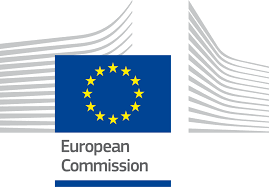
The European Commission has released the 2019 Report on the implementation of National Roma Integration Strategies (NRIS). It provides an overview of Member States’ implementation of Roma inclusion measures, including main achievements and challenges, and formulates policy learnings for future action.
This report complements the evaluation on the EU Framework for NRIS up to 2020 released by the Commission in December 2018, which assessed the EU Framework and how it mobilised other European policy, legal and funding instruments for Roma inclusion.
The document summarises the most important trends focusing on the four policy areas of the EU framework (education, employment, health, housing), as well as fighting discrimination and antigypsyism. In each area the report:
- Highlights the situation of Roma
- Summarises the main types of inclusion measures, achievements and challenges of their implementation (as reported by National Roma Contact Points);
- Formulates policy learning highlighting promising approaches and priorities to be addressed (based on existing evaluations, feedback from civil society and NRCPs).
It takes into account, among other sources, the reports submitted by National Roma Contact Points (all MS with the exception of Denmark, Finland and Ireland, and Malta, that has no Roma community).
Main conclusions
The review of Roma inclusion measures underline the need to identify and develop with active Roma involvement interventions that: respond to and are proportionate with the scale of the challenges; promise measurable results; and include realistic options to generate acceptance by society at large. Success factors for planning, implementation and monitoring Roma inclusion interventions are identified as follows:
- Sufficient time not only for implementation, but for planning, consultation, engaging stakeholders, building trust with communities, monitoring, evaluation and policy review;
- Systematic collection of robust data disaggregated by gender and age to inform needs and context analysis; build a baseline; set targets; and populate outcome and impact indicators
- Embedding targeted interventions in mainstream policy and legal frameworks to ensure that they remain temporary and promote effective equal access of Roma to mainstream services, instead of creating permanent parallel structures;
- Strong multi-stakeholder partnership – to ensure ownership, shared responsibility and sustainability56
- Active participation of Roma and all stakeholders in all stages (planning, implementation, monitoring, evaluation and policy review)
- Intersectional, cross-sectoral, integrated approaches to tackle multiple discrimination and multi-dimensional exclusion
- Gender and child sensitive approach: planning, based on the analysis of the needs of Roma women and children; comprehensive approach; and continuous support especially in critical transitions
- Accounting for the diversity among Roma: reflect on the real needs; ensure sensitivity to local contexts; and address the exclusion and discrimination patterns faced by specific Roma communities
- Tackling extreme poverty with a combination of territorial and group targeting in comprehensive interventions to promote long-term change
- Explicit but not exclusive targeting to ensure consideration of the wider context and prevent resentment from other disadvantaged groups
- Prioritisation of prevention and early intervention to ensure cost efficiency and generate long-term, sustainable change
- Desegregation (in education and housing) as a long-term priority instead of improving quality in segregated settings
- Recognition of antigypsyism to promote a strong non-discrimination approach in Roma inclusion interventions in all areas57
- Expertise to ensure quality, non-discriminatory services
- Building the capacity of civil society, public administration and Roma
- Visible, long-term political and sufficient financial support (including allocation from the national budget) to ensure institutionalisation of promising practices and sustainability
- Flexibility to ensure success by allowing for policy learning and adjustment
- Independent quantitative and qualitative monitoring and evaluation to measure progress, and ensure policy review
Looking beyond 2020
The findings of the report and of the mid-term evaluation will feed into the discussions of the ‘Workshop on future policies for Roma’, which will be organised by the European Commission on 1 October 2019. The meeting will gather relevant actors -including NRCPs, representatives of European institutions, civil society organisations and international organisations- to consider a potential specific EU Roma policy initiative for post-2020, once the current framework comes to an end.
EURoma has closely monitored and contributed, based on the ongoing internal debates within the Network, the current reflection on the future of the current EU Framework for NRIS. EURoma clearly advocates for a renewal of the EU Framework after 2020. The current Framework has been the trigger of a process to address a complex and longstanding situation of social exclusion and marginalisation that should be continued beyond 2020. (see EURoma’s Contribution to European Commission «Mid-term review of the EU Framework for National Roma Integration Strategies up to 2020»).
Further information:
- European Commission Communication «Report on the implementation of national Roma integration strategies-2019», COM/2019/406 final (available in all EU languages)
- European Commission Staff Working Document, SWD/2019/320 final (only available in English)
- EURoma Network Contribution to European Commission «Mid-term review of the EU Framework for National Roma Integration Strategies up to 2020» (available in English and Spanish)

